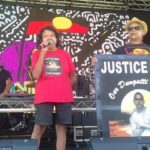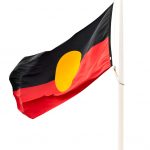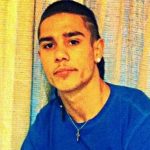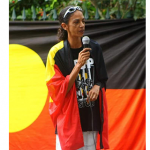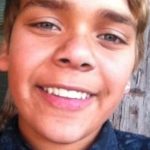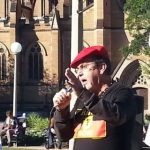Inquest Into Death of David Dungay Resumes
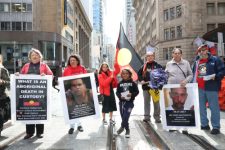
The coronial inquest into the death of 26-year old mentally ill Indigenous man David Dungay Jr has finally resumed at Sydney’s Downing Centre Courthouse, following a lengthy delay.
The first part of the inquest was held back in July 2018, but proceedings were adjourned when Deputy State Coroner Derek Lee ran out of time to hear from all of the witnesses.
Death in custody
During the first hearing, CCTV footage was played of the eight minutes leading up to Mr Dungay’s death, which showed several prison guards storming the diabetic’s mental health cell as he ate rice crackers. The burley men are seen holding Mr Dungay face down and even sitting on him.
The guards had been called because Dungay refused to stop eating the crackers.
The harrowing footage shows the inmate gasping for air and screaming “I can’t breathe” twelve separate times as he is pinned down and then forcibly transferred to another cell where a nurse injects him with a sedative.
According to an incident report by the NSW Health Department, Mr Dungay died “during a use of physical restraint and rapid tranquillisation in an inpatient mental health unit”.
The report is consistent with ‘positional asphyxia’, which is where a person becomes unable to breathe due to a forced body position or physical restraints.
Second hearing
The current hearing is listed for 4 days and involves 10 additional witnesses, including a full day for statements from the deceased’s family members.
Mr Dungay’s mother Leetona Dungay is expected to provide a victim impact statement and says she wants the guards involved to be made accountable. “I want to see criminal charges because they have taken someone’s life,” she told Sydney Criminal Lawyers.
Conduct and attitude of the guards
The cause of death is currently “unascertained”, but the Health Department report reveals “several abnormalities” which suggest a breach of the duty of care owed by the prison and the guards towards those they are responsible for.
For instance, it was revealed that some of the guards thought Dungay was faking it when he stated twelve times that he was unable to breathe.
It was also found that five of the six guards involved had never been trained in the dangers of positional asphyxia, despite their job involving the physical restraint of individuals.
During the original investigation, one of the guards admitted not having heard of positional asphyxiation.
Another senior guard testified that he “never” used Aboriginal welfare officers or delegates in the mental health ward.
The guard also admitted making no attempt to request a doctor at any stage.
Professor Anthony Brown testified that the failure of staff to adequately administer first aid removed any chance of survival for Mr Dungay.
He gave evidence that while initial attempts at resuscitation were appropriate, the medical treatment provided by Justice Health staff was deficient in a number of respects, including the short length of CPR and the failure to remove the “cap” from resuscitation equipment in accordance with accepted procedures.
The Professor found there was a lack of “fundamental basic life support” to resuscitate someone in Dungay’s situation, and it was likely the deceased suffered asystole cardiac arrest – the most serious and usually irreversible form of a heart attack – to which his restraint and positional asphyxia contributed.
Aboriginal deaths in custody
The Royal Commission into Aboriginal Deaths in Custody was established in 1987 in response to the high proportion of Indigenous people dying in the custody of police and correctional institutions.
The Commission found that the negligence of authorities or failure to follow procedures contributed to around two-thirds of deaths in New South Wales .Other deaths were found to have been avoidable because the persons should never have been taken into custody in the first place.
It further noted that the rate at which Aboriginal people were taken into custody was substantially higher than for non-Aboriginals suspected of similar crimes.
A total of 147 Indigenous people have died since the end of the royal commission in 1991, and a recent study found that policies and procedures were ignored by authorities in a significant number of these cases.
Agencies such as police watch-houses, prisons and hospitals failed to follow their own procedures in 34% of cases where Indigenous people died, compared with 21% of cases where non-Indigenous people died.


